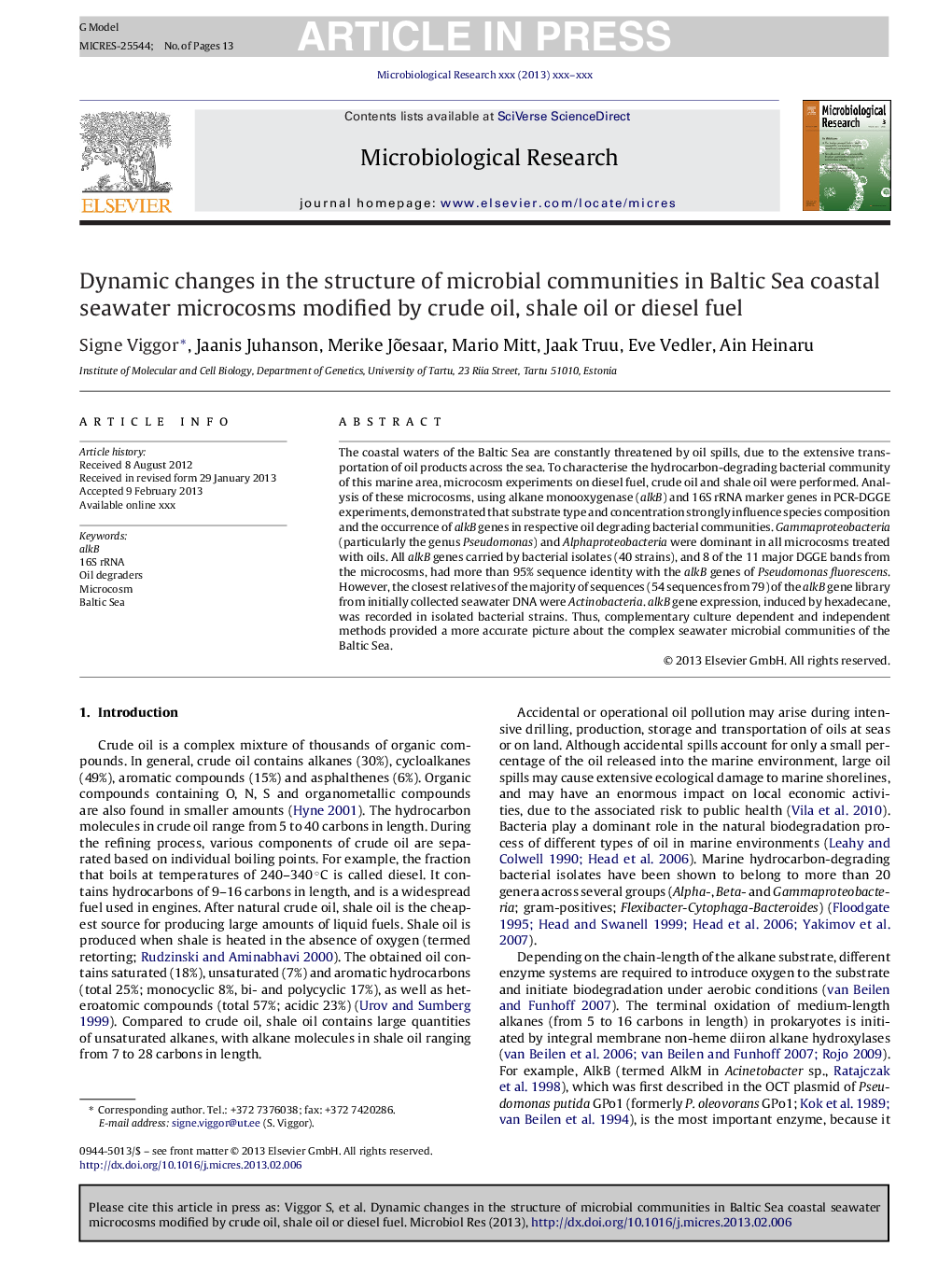| Article ID | Journal | Published Year | Pages | File Type |
|---|---|---|---|---|
| 10891194 | Microbiological Research | 2013 | 13 Pages |
Abstract
The coastal waters of the Baltic Sea are constantly threatened by oil spills, due to the extensive transportation of oil products across the sea. To characterise the hydrocarbon-degrading bacterial community of this marine area, microcosm experiments on diesel fuel, crude oil and shale oil were performed. Analysis of these microcosms, using alkane monooxygenase (alkB) and 16S rRNA marker genes in PCR-DGGE experiments, demonstrated that substrate type and concentration strongly influence species composition and the occurrence of alkB genes in respective oil degrading bacterial communities. Gammaproteobacteria (particularly the genus Pseudomonas) and Alphaproteobacteria were dominant in all microcosms treated with oils. All alkB genes carried by bacterial isolates (40 strains), and 8 of the 11 major DGGE bands from the microcosms, had more than 95% sequence identity with the alkB genes of Pseudomonas fluorescens. However, the closest relatives of the majority of sequences (54 sequences from 79) of the alkB gene library from initially collected seawater DNA were Actinobacteria. alkB gene expression, induced by hexadecane, was recorded in isolated bacterial strains. Thus, complementary culture dependent and independent methods provided a more accurate picture about the complex seawater microbial communities of the Baltic Sea.
Keywords
Related Topics
Life Sciences
Biochemistry, Genetics and Molecular Biology
Biotechnology
Authors
Signe Viggor, Jaanis Juhanson, Merike Jõesaar, Mario Mitt, Jaak Truu, Eve Vedler, Ain Heinaru,
